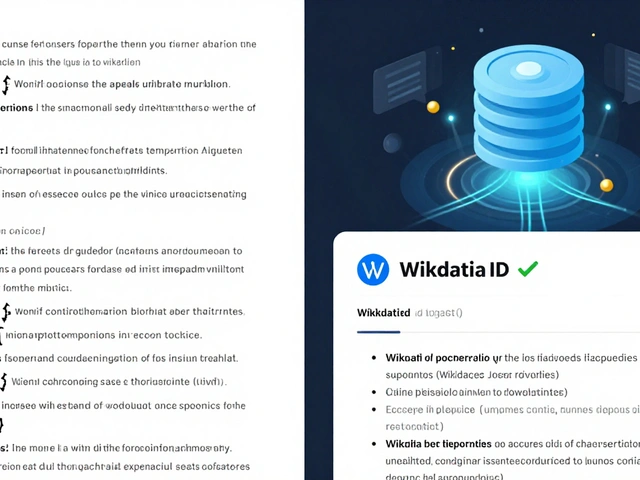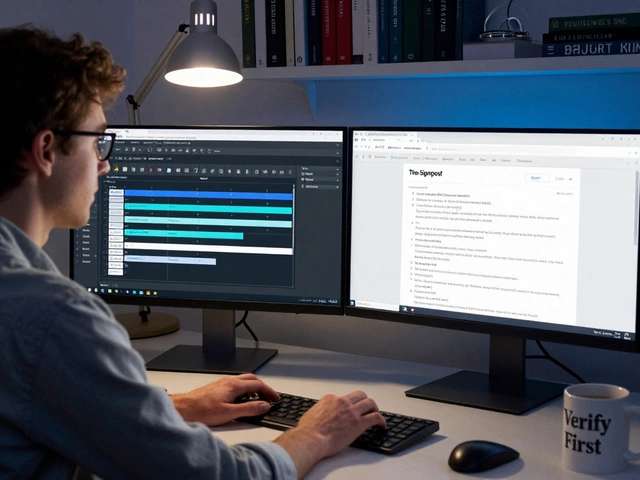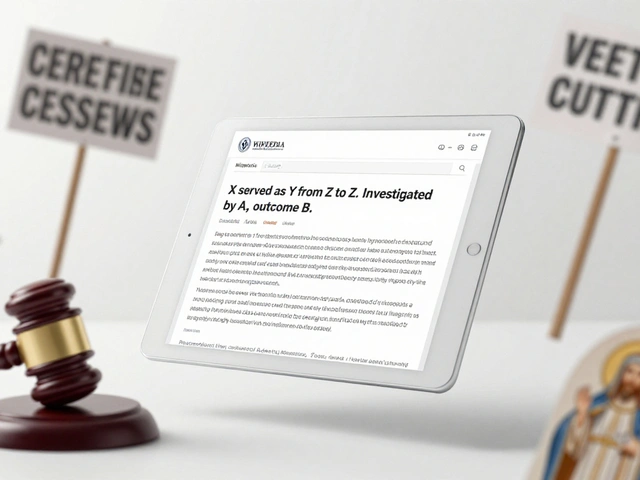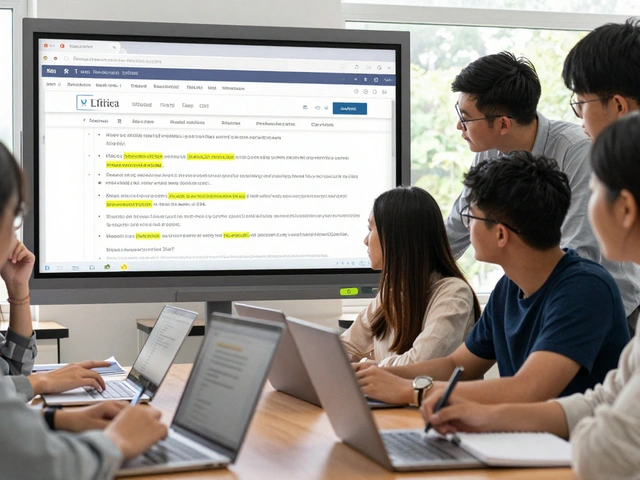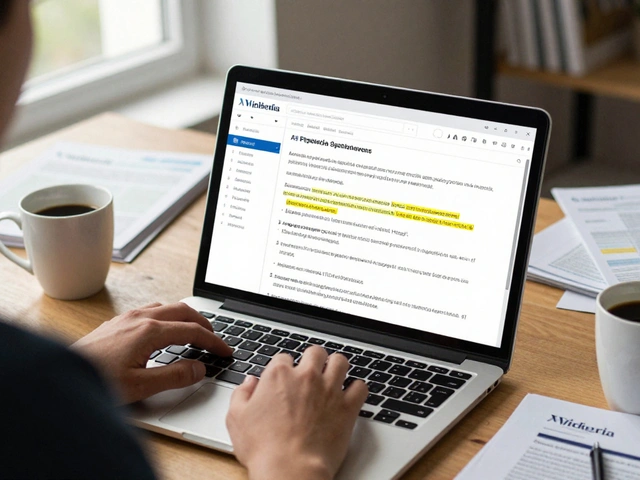
Wikipedia isn’t just a website anymore. It’s becoming a frontline in the fight for trustworthy information in the age of artificial intelligence. The Wikimedia Foundation, the nonprofit behind Wikipedia, isn’t waiting for AI to reshape how we learn - it’s actively shaping how AI learns from us. And that’s why their push for AI literacy and policy advocacy matters more than ever.
Why AI Literacy Isn’t Just for Tech People
Most people think AI literacy means understanding how neural networks work. It doesn’t. It means knowing when an AI is making things up, when it’s copying without credit, and when it’s leaving out whole perspectives. The Wikimedia Foundation’s AI literacy program started because they saw students using AI to write essays - and not realizing the sources were fake. One 2024 survey of university students showed 68% couldn’t tell if a Wikipedia summary generated by AI was accurate or hallucinated.
That’s not a tech failure. It’s a literacy gap. The Foundation’s response? Free, open-access lessons for teachers, librarians, and community groups. These aren’t coding tutorials. They’re real-world guides: ‘How to spot AI-generated citations,’ ‘Why Wikipedia’s edit history beats AI summaries,’ and ‘What happens when AI trains on biased data.’ They’ve partnered with schools in 17 countries to roll out these modules, and early results show students who completed the training were 42% more likely to check sources before trusting an AI answer.
How Wikipedia’s Data Is Being Used - and Misused
Wikipedia is one of the largest open knowledge bases on the planet. Every edit, every citation, every flagged claim is public. That makes it a goldmine for AI companies training their models. Google, Meta, and Anthropic have all used Wikipedia data to build their AI systems. But here’s the problem: most of them don’t credit it. They don’t link back. They don’t even say they used it.
The Wikimedia Foundation calls this ‘data extraction without reciprocity.’ It’s like taking books from a public library, rewriting them, and selling them as your own - without ever mentioning the library existed. In 2023, researchers at the University of Washington found that 92% of major AI training datasets included Wikipedia content, but only 3% disclosed the source. That’s not just unethical - it’s unsustainable. If AI models keep learning from Wikipedia without giving back, the quality of the original content could drop as editors get burned out or discouraged.
The Foundation isn’t asking for money. They’re asking for transparency. Their policy paper, ‘Responsible AI Use of Open Knowledge,’ demands that companies using Wikipedia data must: disclose the source, preserve attribution, and contribute back to improving the knowledge base - whether by funding editors, sharing model improvements, or helping fight misinformation.

Policy Advocacy: Taking the Fight to Governments
Wikipedia doesn’t have lobbyists in Washington. But it does have something better: a global network of editors, researchers, and digital rights advocates. In 2024, the Wikimedia Foundation joined forces with the Electronic Frontier Foundation and Access Now to push for AI regulations that protect open knowledge.
They’ve testified before the European Parliament, the U.S. House Science Committee, and Brazil’s Digital Rights Council. Their message is simple: AI regulation shouldn’t just be about banning deepfakes or limiting chatbots. It needs to protect the public commons of knowledge. They’re pushing for laws that require:
- Disclosure of training data sources for public-facing AI models
- Legal protection for open knowledge repositories from being scraped without consent
- Funding for public-interest AI projects that improve, not replace, open knowledge
In the EU, their advocacy helped shape Article 15 of the AI Act, which now requires companies to document the origin of training data if their models are used in public services. In the U.S., they’ve influenced draft bills in California and New York that would mandate transparency for AI-generated content used in education and journalism.
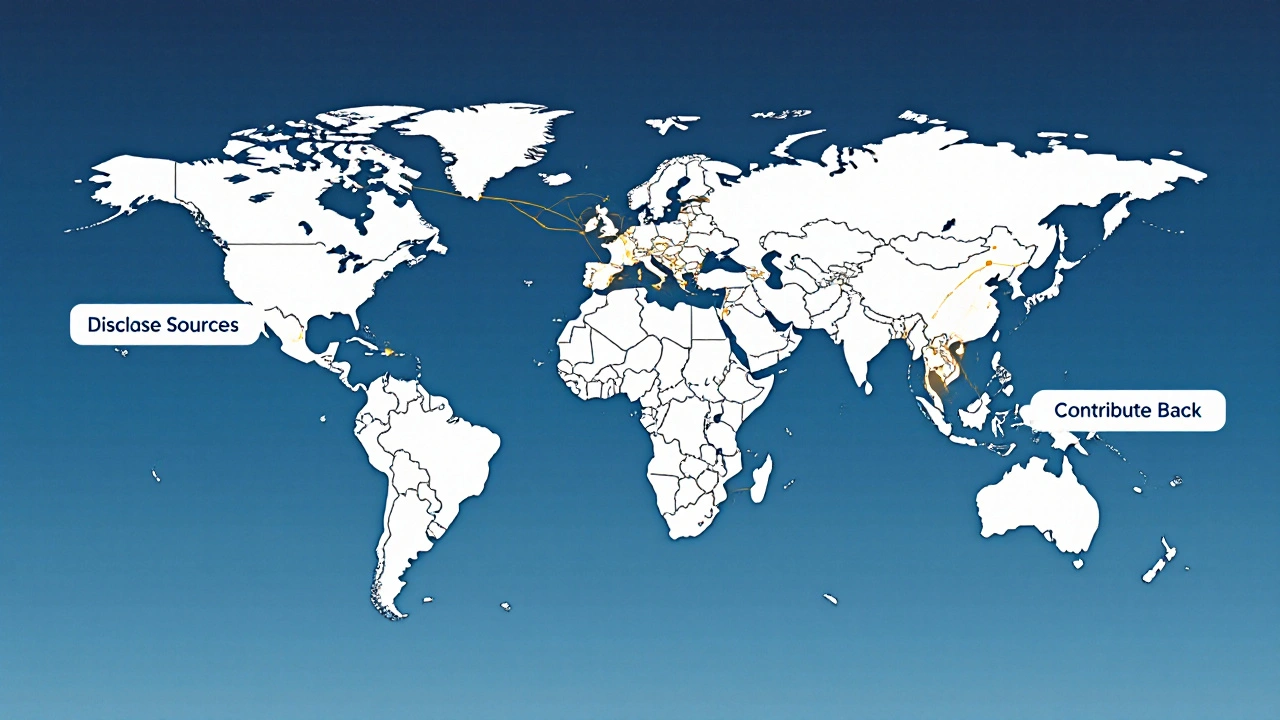
What Happens If No One Steps In?
Imagine a world where Google’s AI summary of ‘World War II’ is built from 100 AI-generated articles that all cite each other - but none cite Wikipedia, none cite historians, and none cite primary sources. That’s not science fiction. It’s already happening with smaller topics. A 2025 study by the University of Oxford found that AI-generated summaries of lesser-known historical events were 73% more likely to contain invented details than summaries based on Wikipedia.
Without intervention, open knowledge will become a ghost town. Fewer people will edit Wikipedia because they’ll think AI has already ‘fixed’ it. Students will stop learning how to research. Librarians will lose their role as guides to truth. And the internet will become a hall of mirrors - each AI model reflecting back distorted versions of the same half-truths.
The Wikimedia Foundation’s work isn’t about stopping AI. It’s about making sure AI doesn’t erase the foundations of truth. They’re not anti-AI. They’re pro-accountability. Pro-transparency. Pro-openness.
What You Can Do Right Now
You don’t need to be a coder or a policy expert to help. Here’s what actually works:
- When you use AI to summarize something, check the original source. If it’s Wikipedia, link to it.
- If you’re a teacher, use Wikimedia’s free AI literacy lesson plans. They’re ready to download and use in any classroom.
- Report AI-generated misinformation that copies Wikipedia without credit. The Foundation tracks these cases to build legal arguments.
- Donate to or volunteer with your local Wikimedia chapter. More editors = more reliable data = better AI training.
Wikipedia was built by millions of ordinary people who cared enough to fix a typo, add a citation, or correct a lie. That same spirit is needed now - not to fight AI, but to make sure AI doesn’t forget where knowledge comes from.
Is Wikipedia being used to train AI without permission?
Yes. Most major AI companies use Wikipedia content to train their models, but nearly all of them don’t ask permission or give credit. The Wikimedia Foundation considers this unethical data extraction. They’re pushing for legal requirements that force companies to disclose their sources and contribute back to open knowledge projects.
What is AI literacy according to the Wikimedia Foundation?
AI literacy, as defined by the Wikimedia Foundation, is the ability to recognize when AI is generating false or misleading information, understand how AI models are trained on public data like Wikipedia, and know how to verify sources independently. It’s not about coding - it’s about critical thinking in the digital age.
Does the Wikimedia Foundation oppose AI?
No. The Foundation supports AI that improves access to knowledge - as long as it’s transparent, ethical, and respectful of open knowledge. They’re not against AI tools helping students or researchers. They’re against AI systems that steal knowledge without giving back or misrepresenting it.
How can educators use Wikimedia’s AI literacy resources?
The Wikimedia Foundation offers free, ready-to-use lesson plans for K-12 and university teachers. These include activities on comparing AI summaries to Wikipedia articles, tracing citations, and identifying hallucinations. All materials are available in multiple languages and can be downloaded from the Wikimedia Education portal.
What’s the difference between AI ethics and Wikimedia’s policy goals?
AI ethics often focuses on bias, fairness, and safety in AI systems. Wikimedia’s policy goals are more specific: they demand that AI companies using open knowledge (like Wikipedia) must disclose their sources, preserve attribution, and contribute to improving the knowledge base. It’s not just about doing no harm - it’s about giving back.
